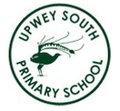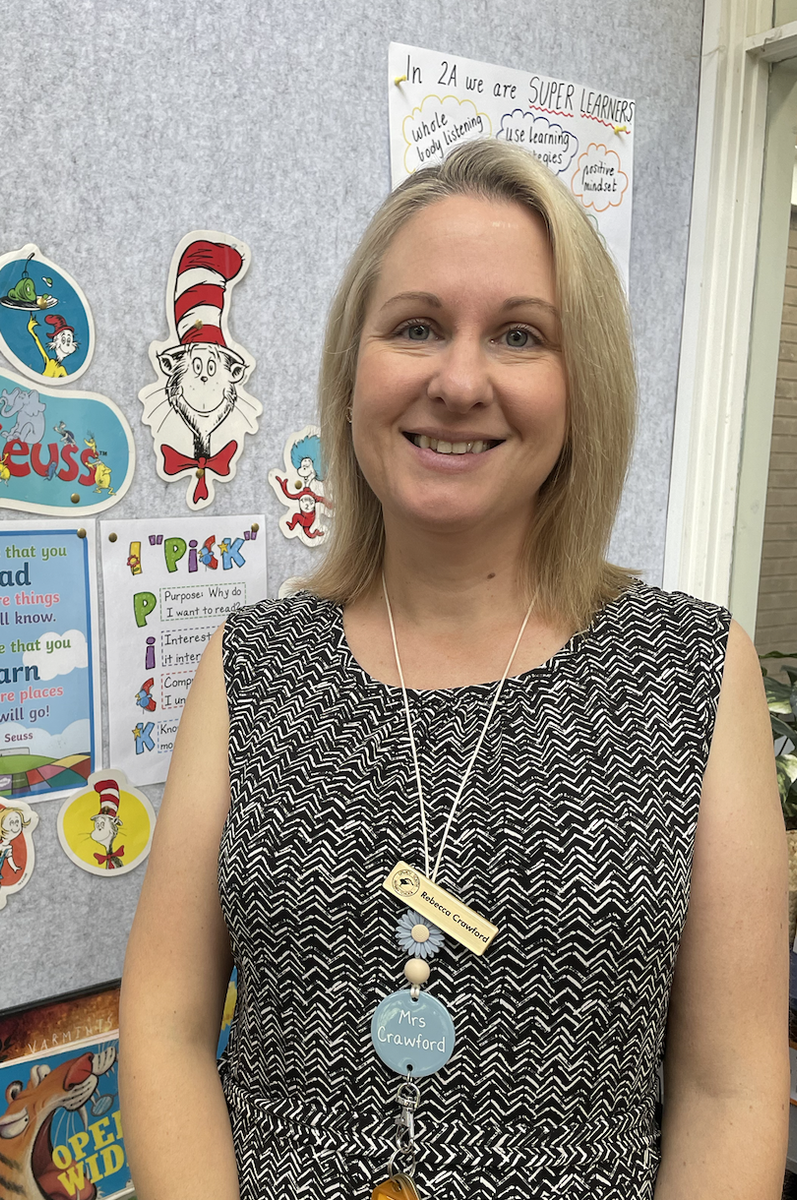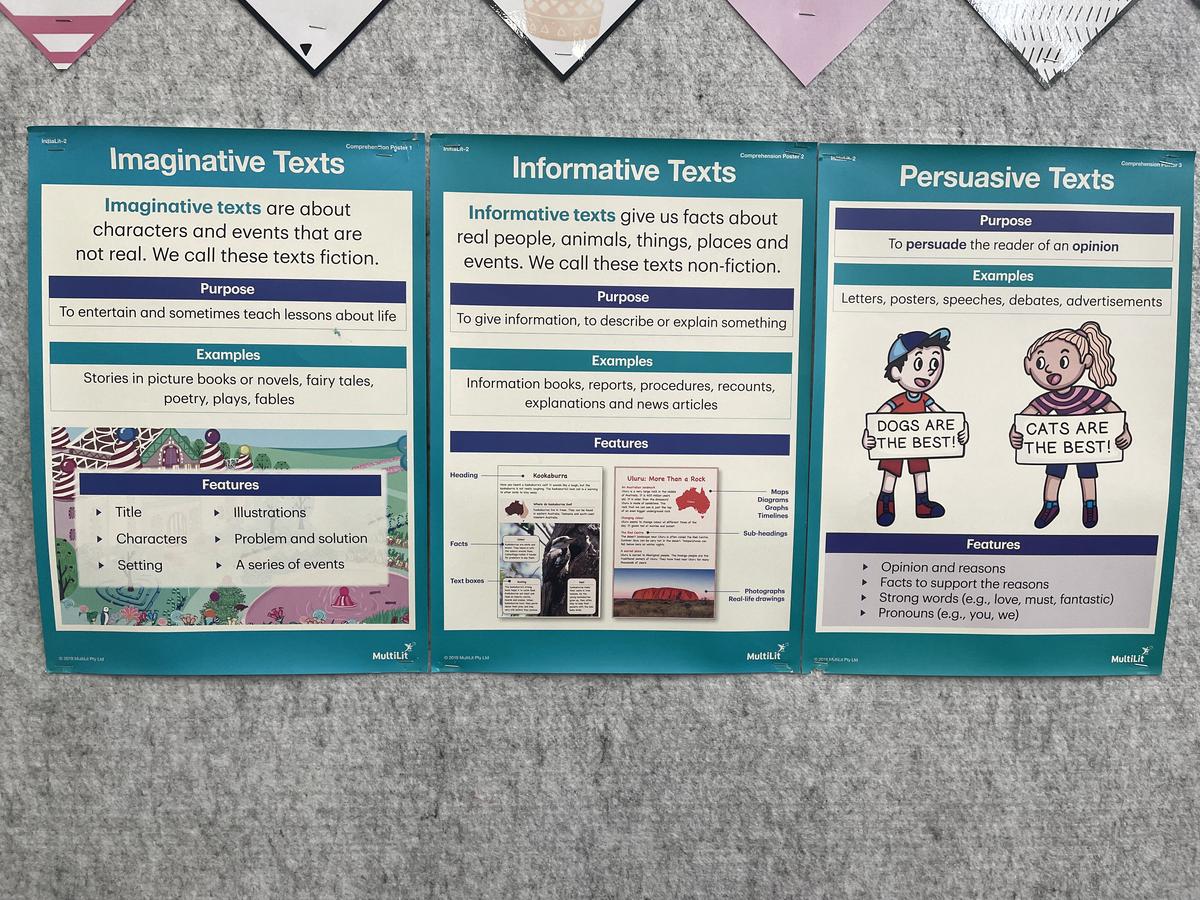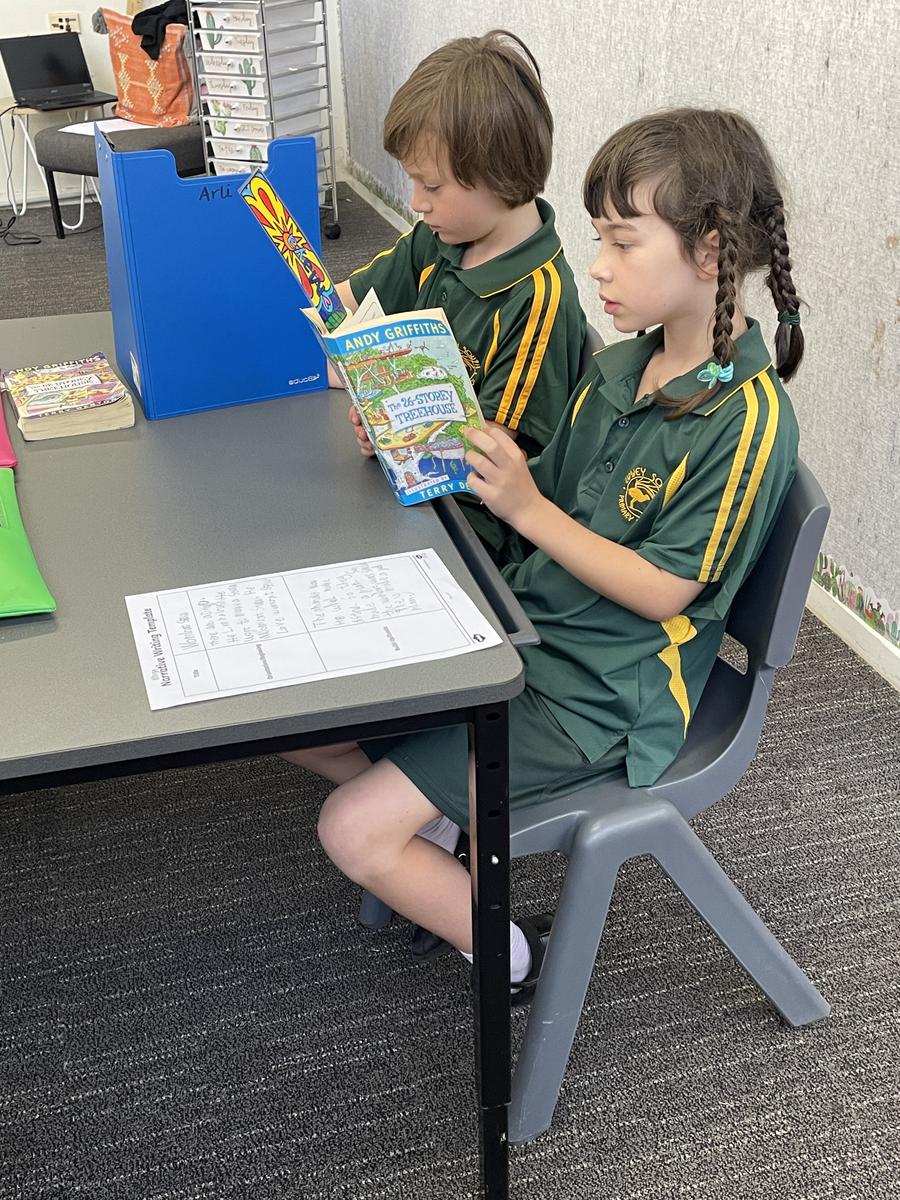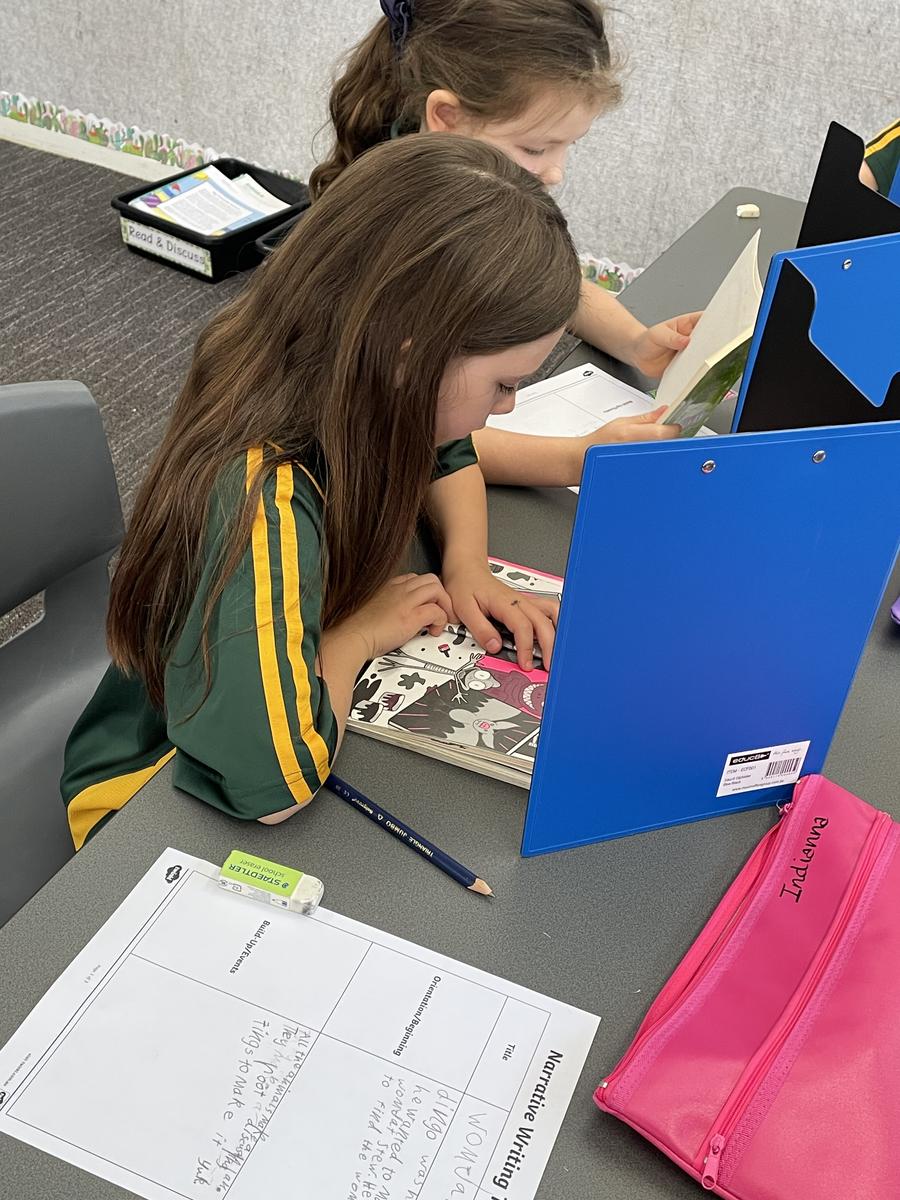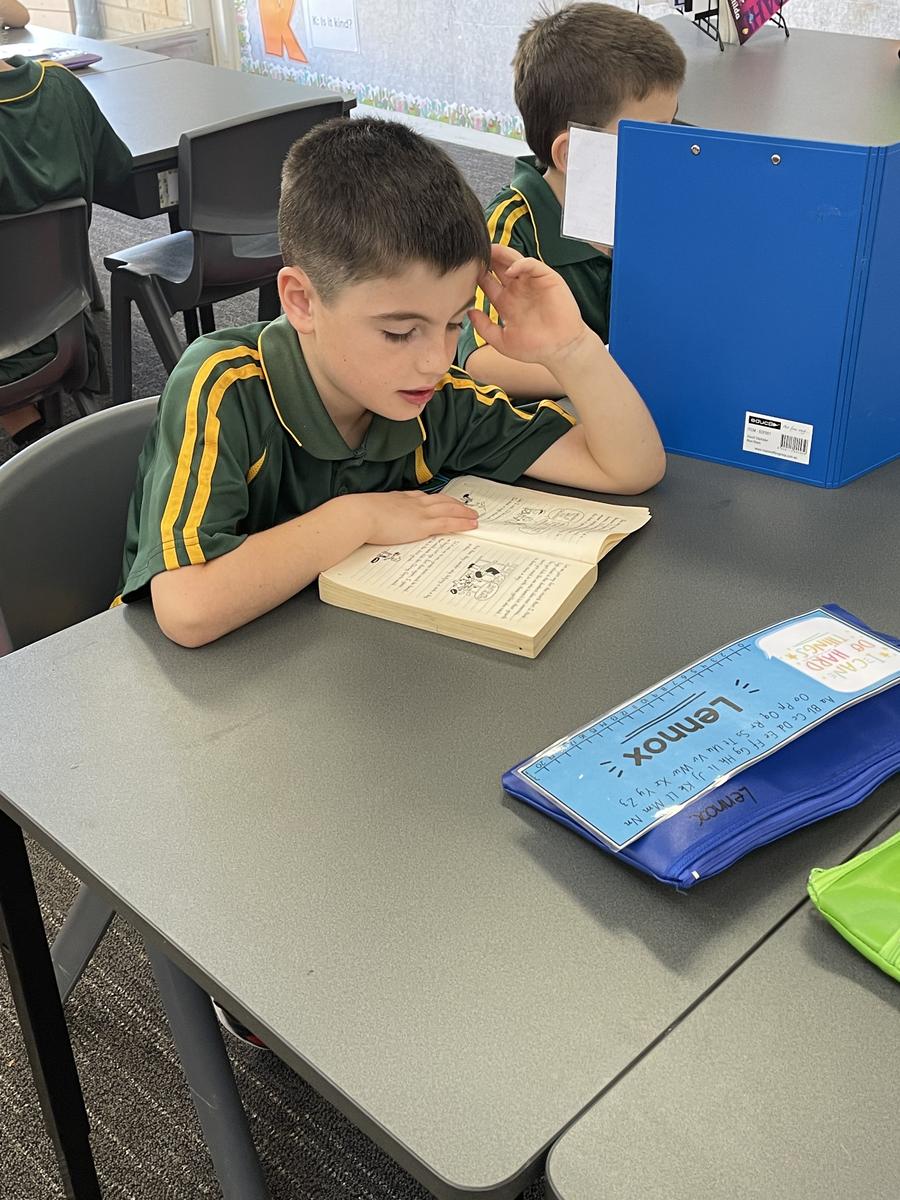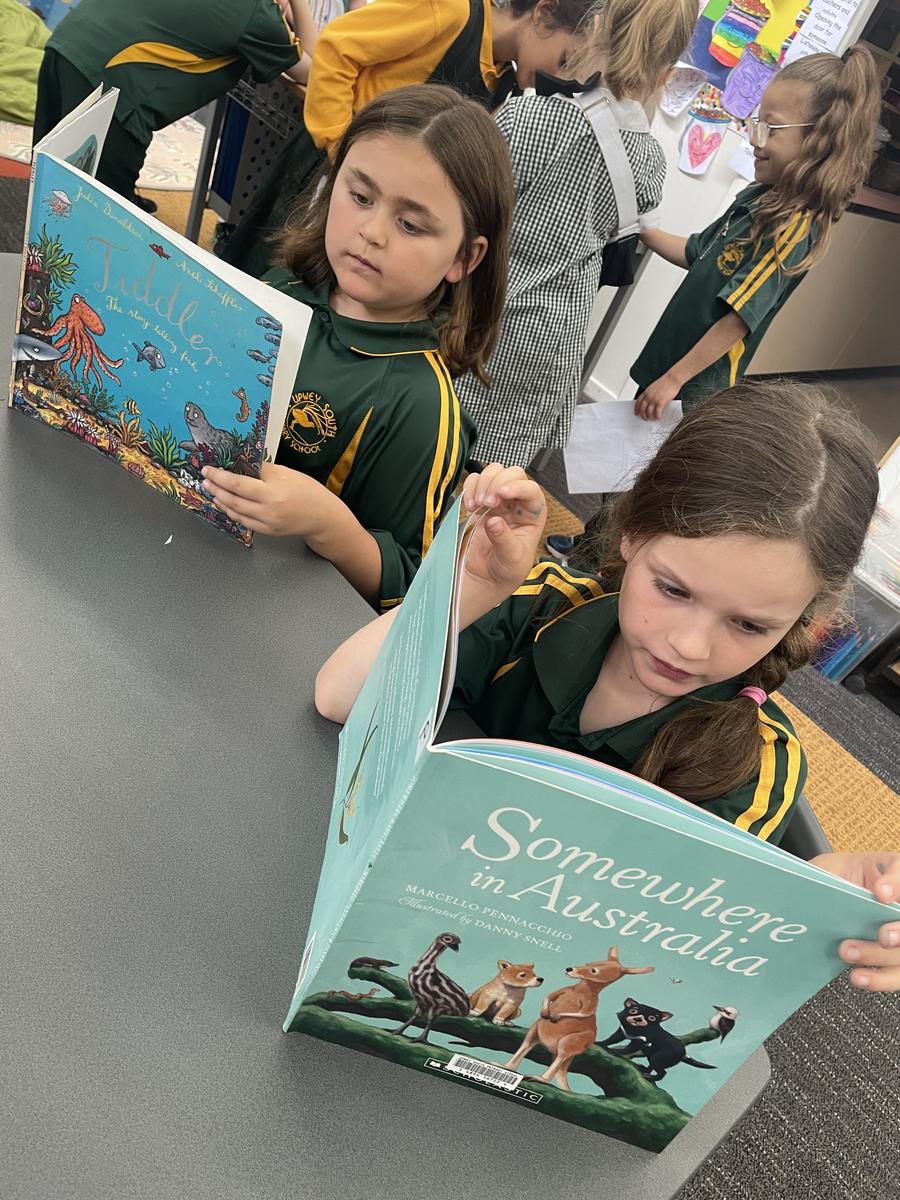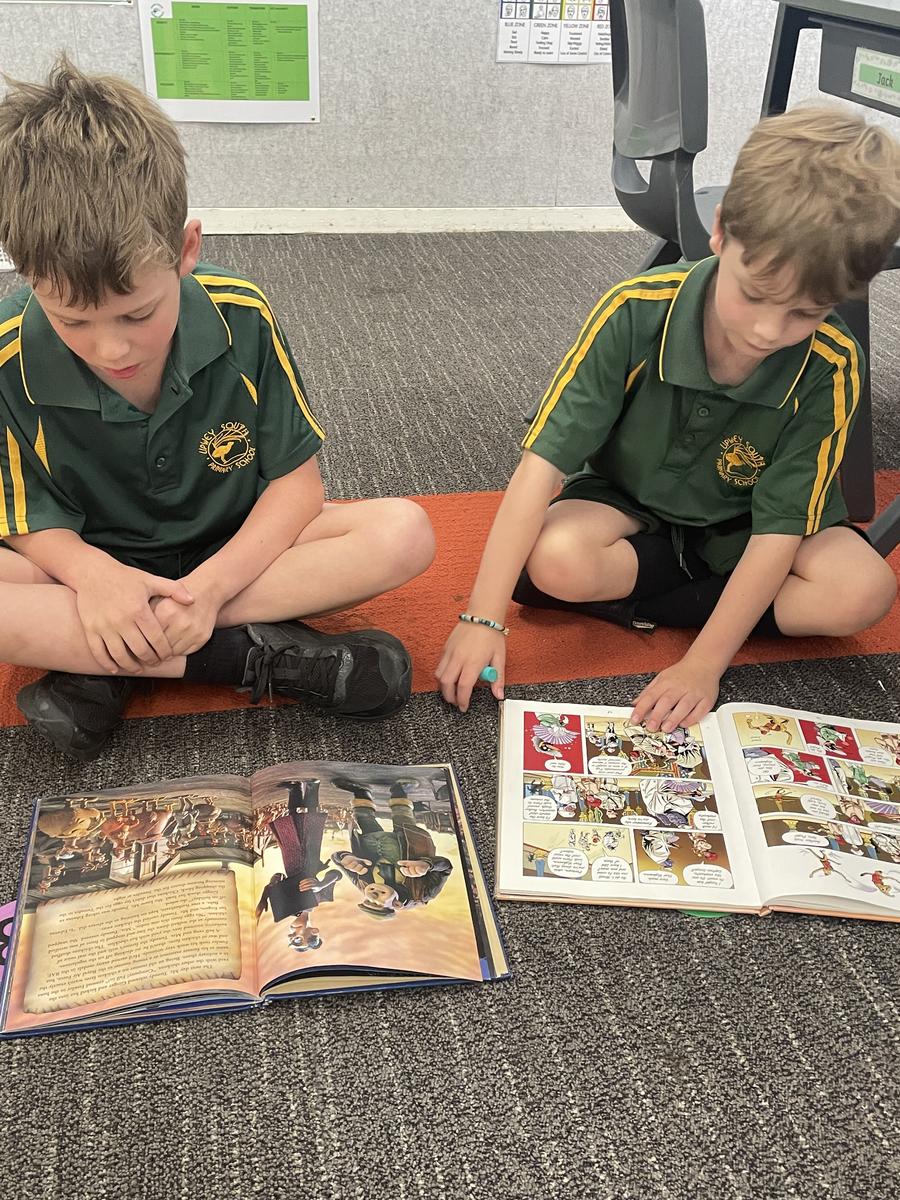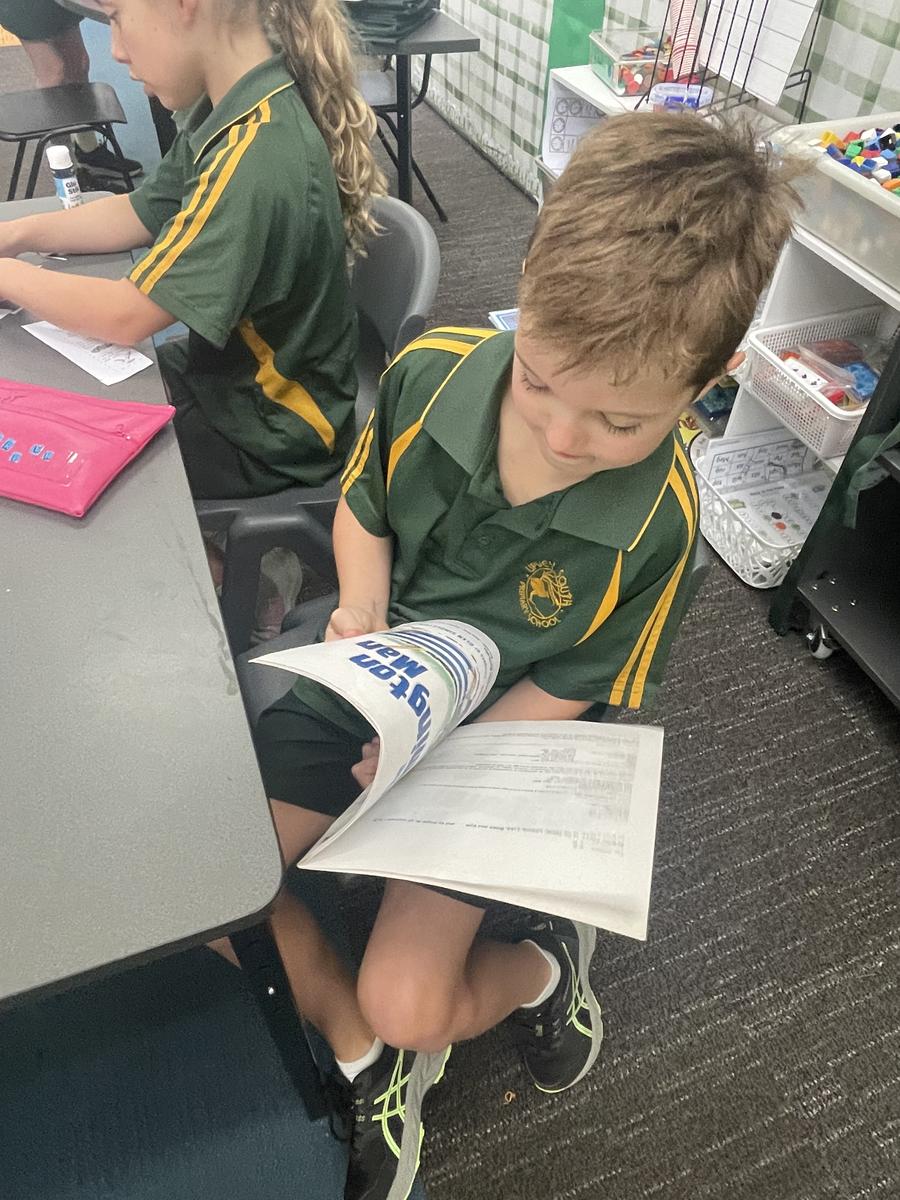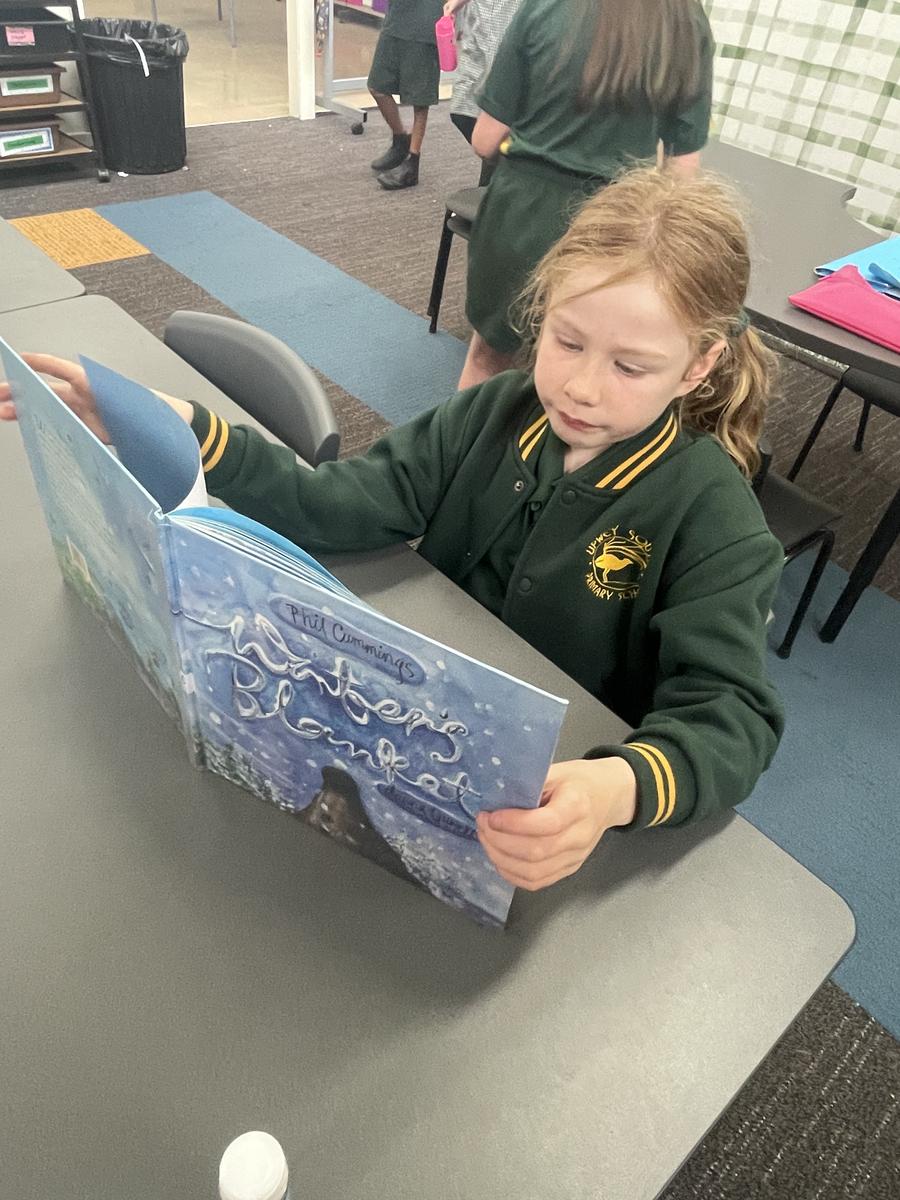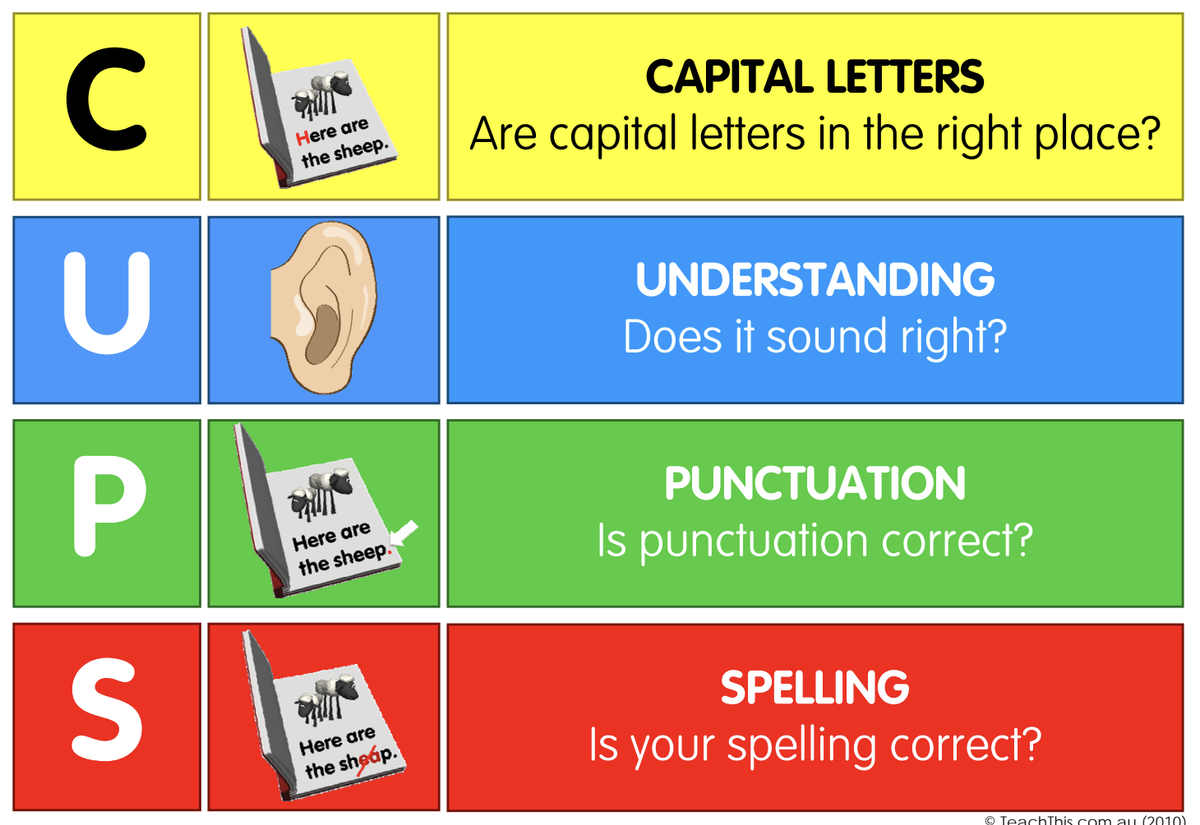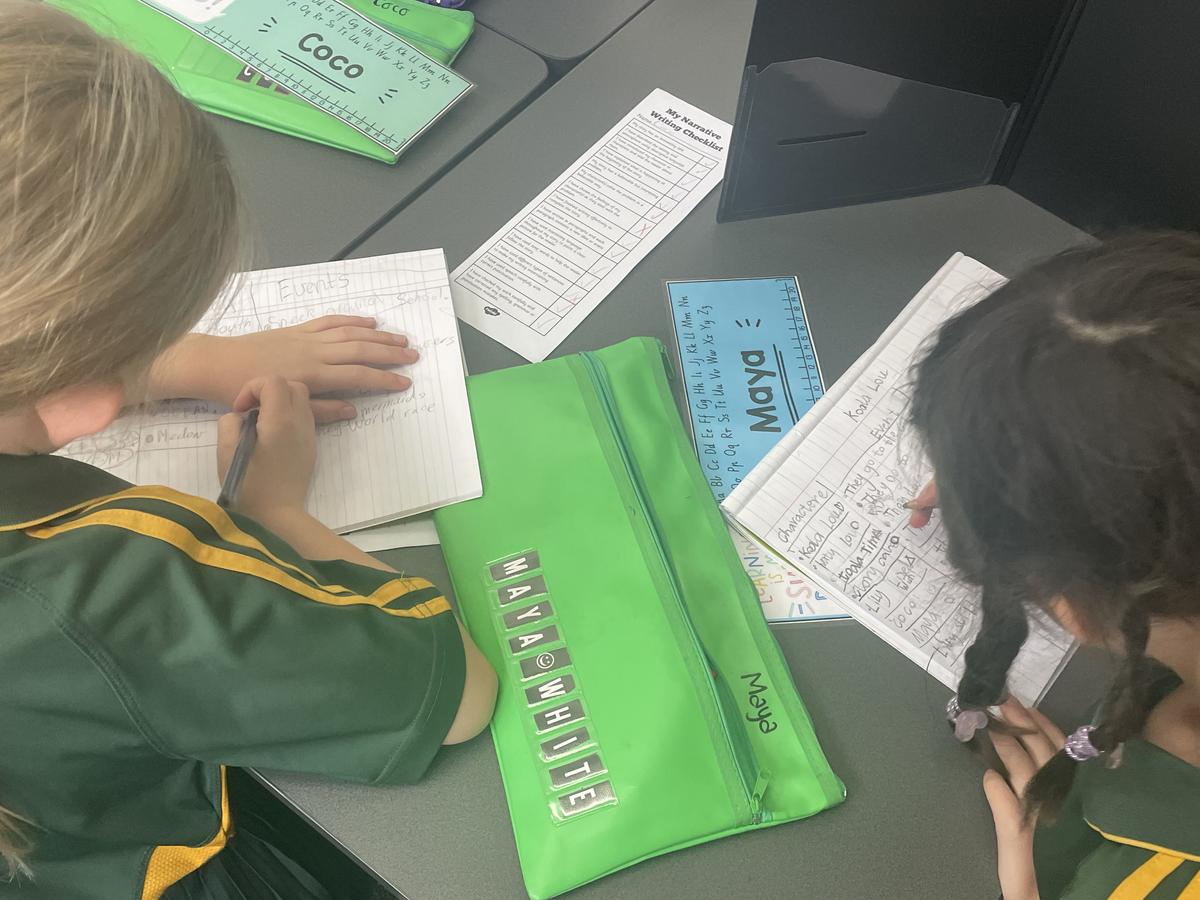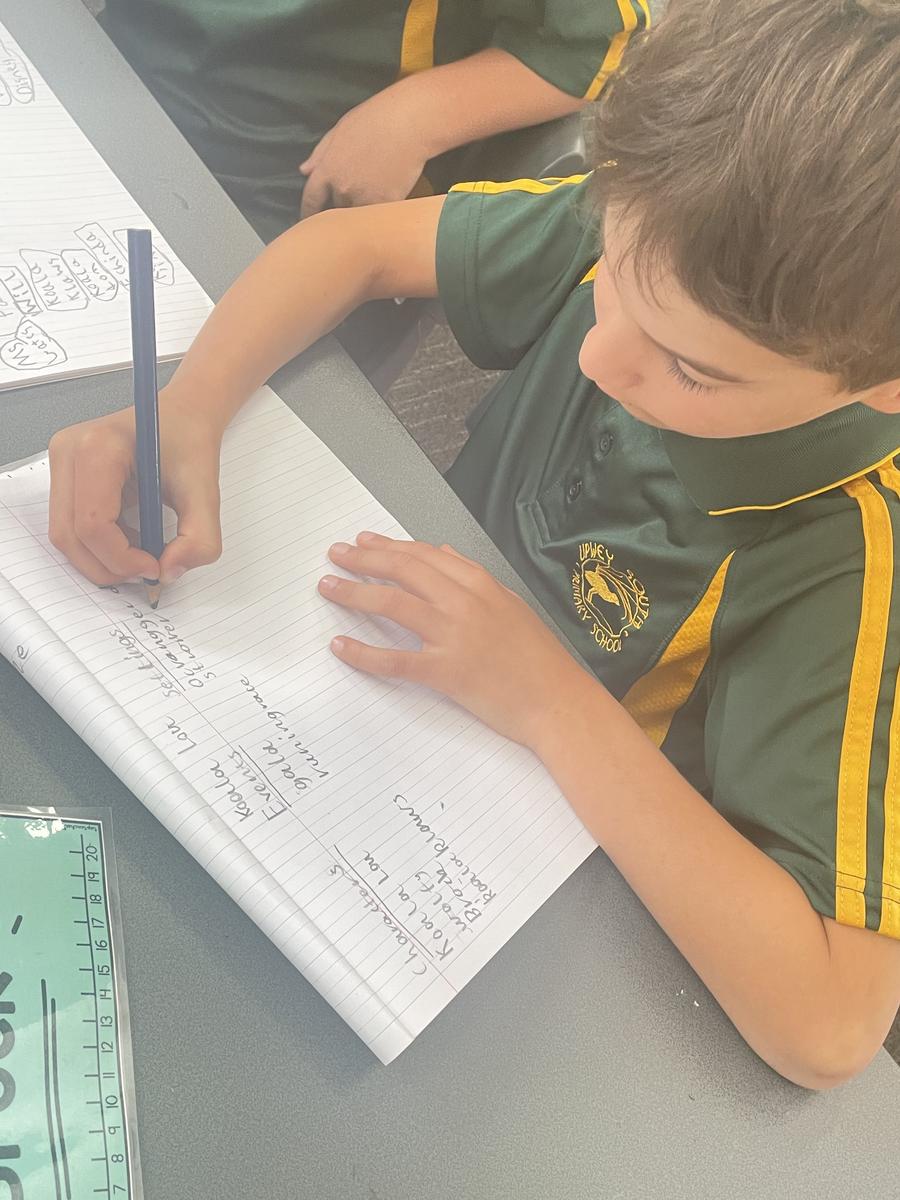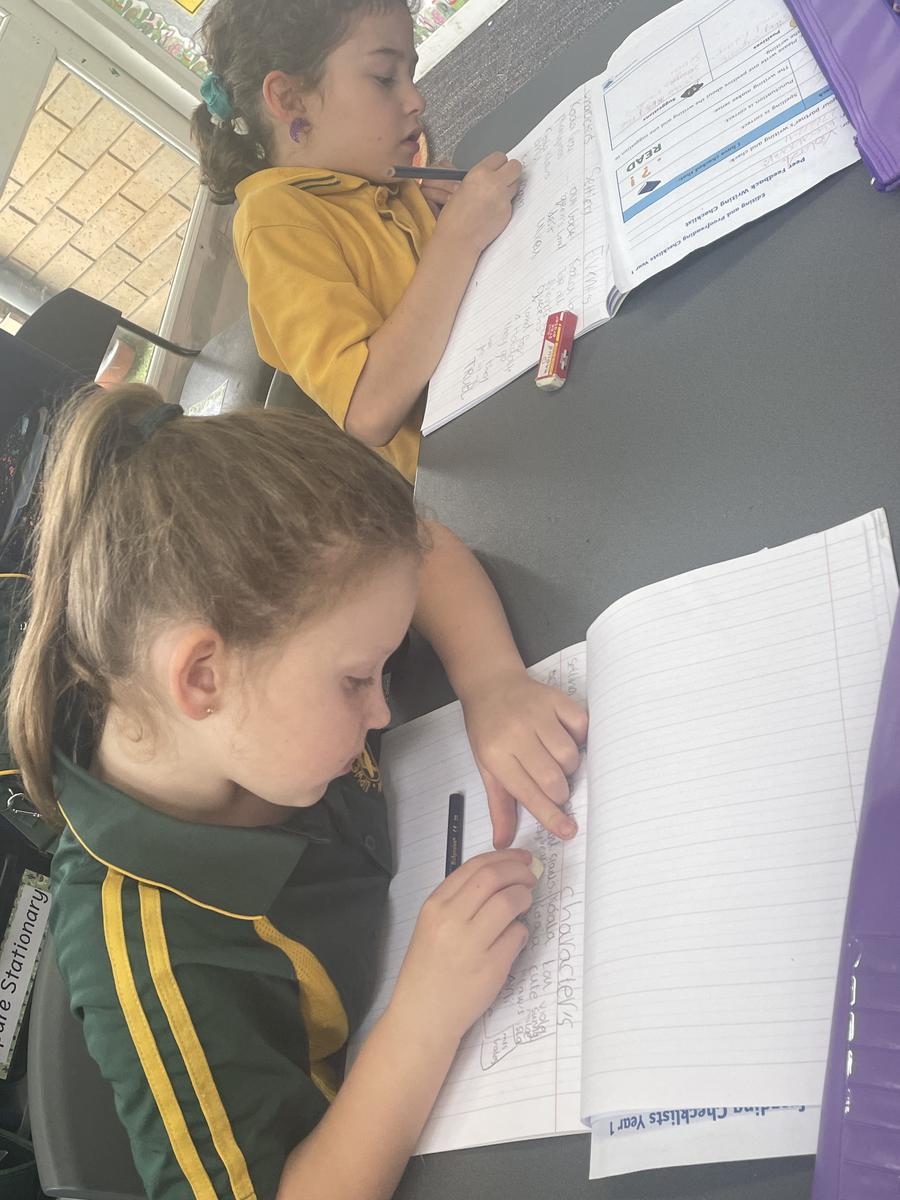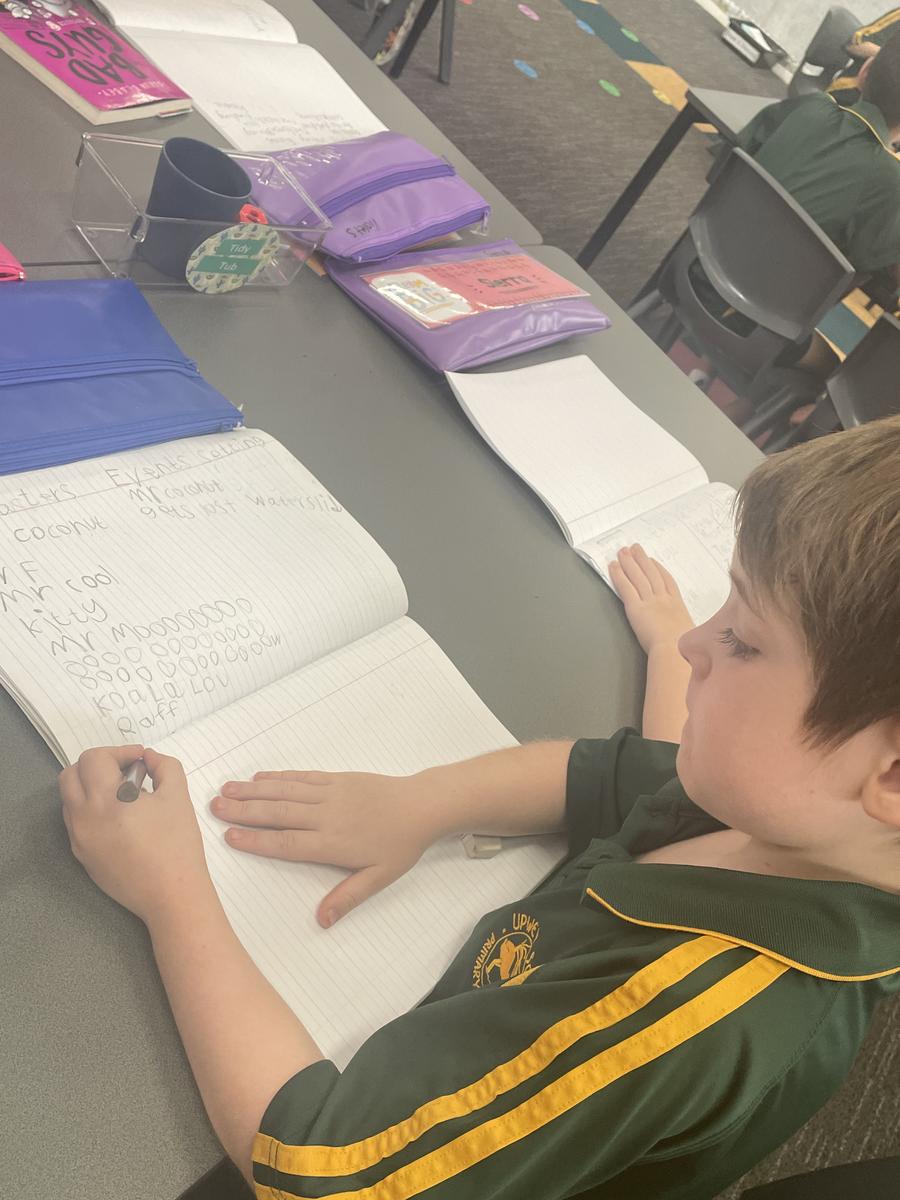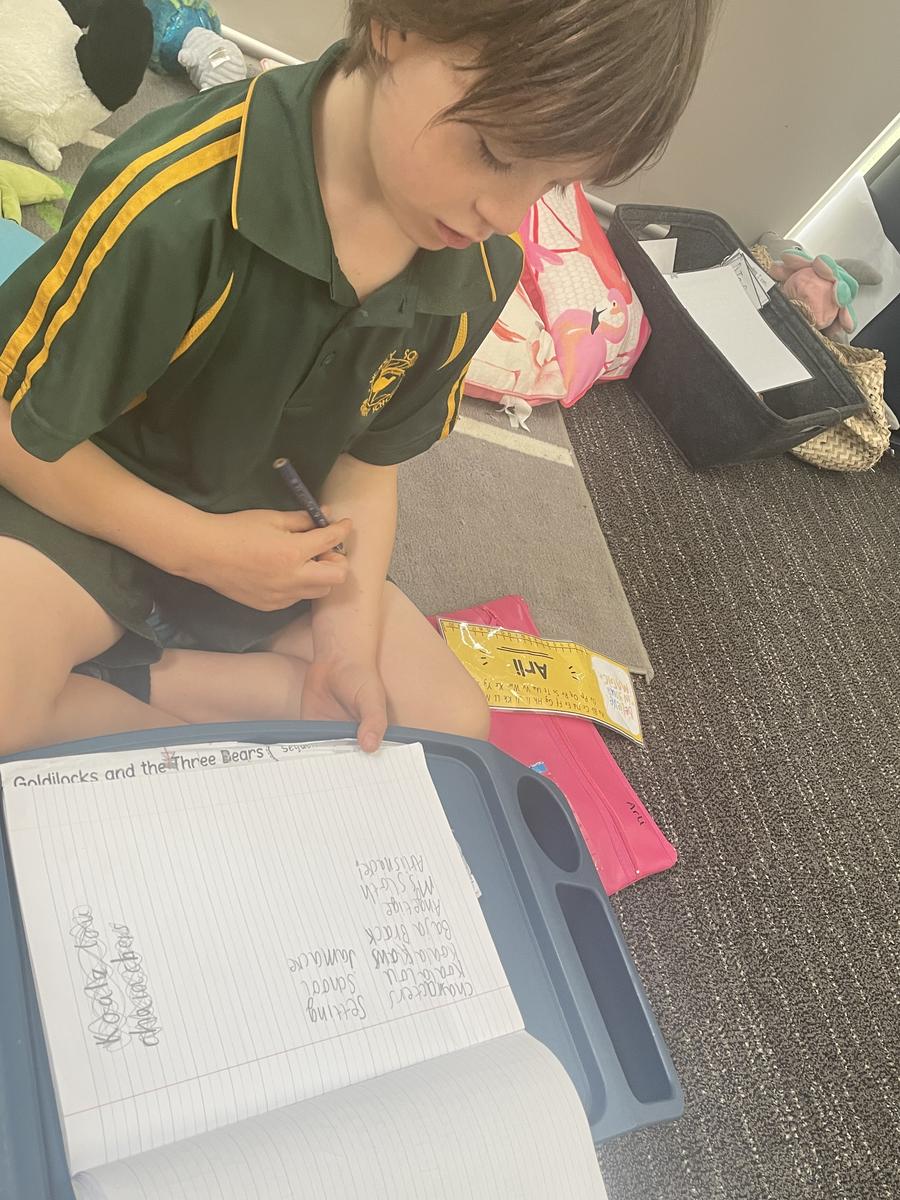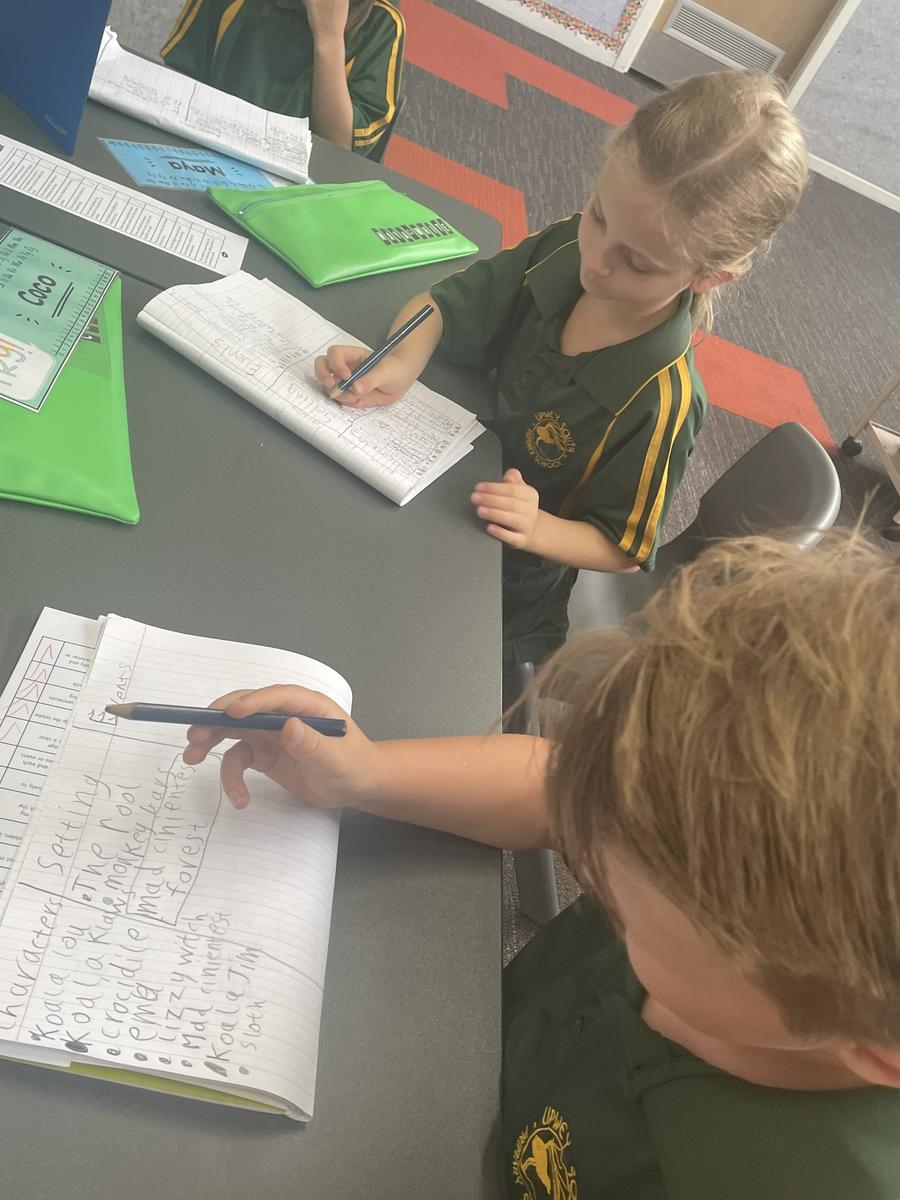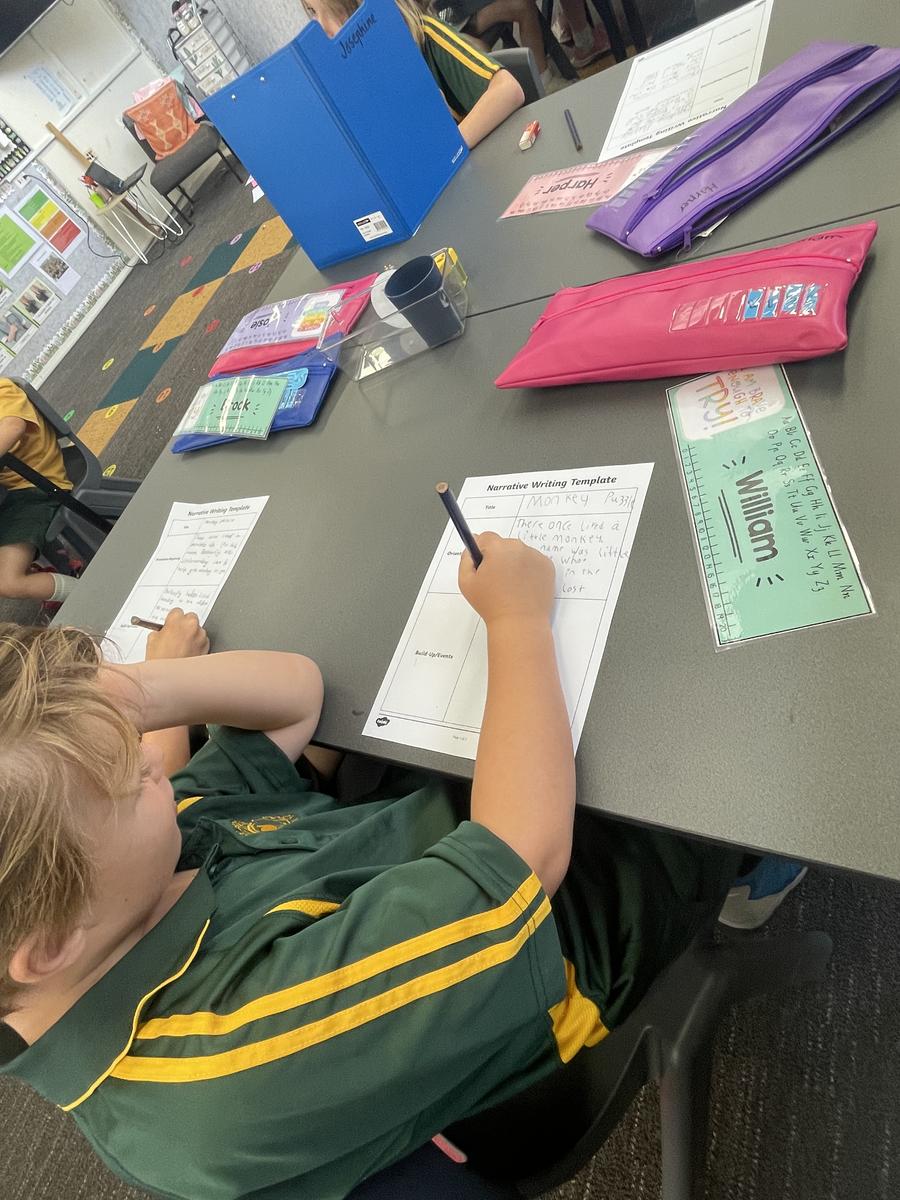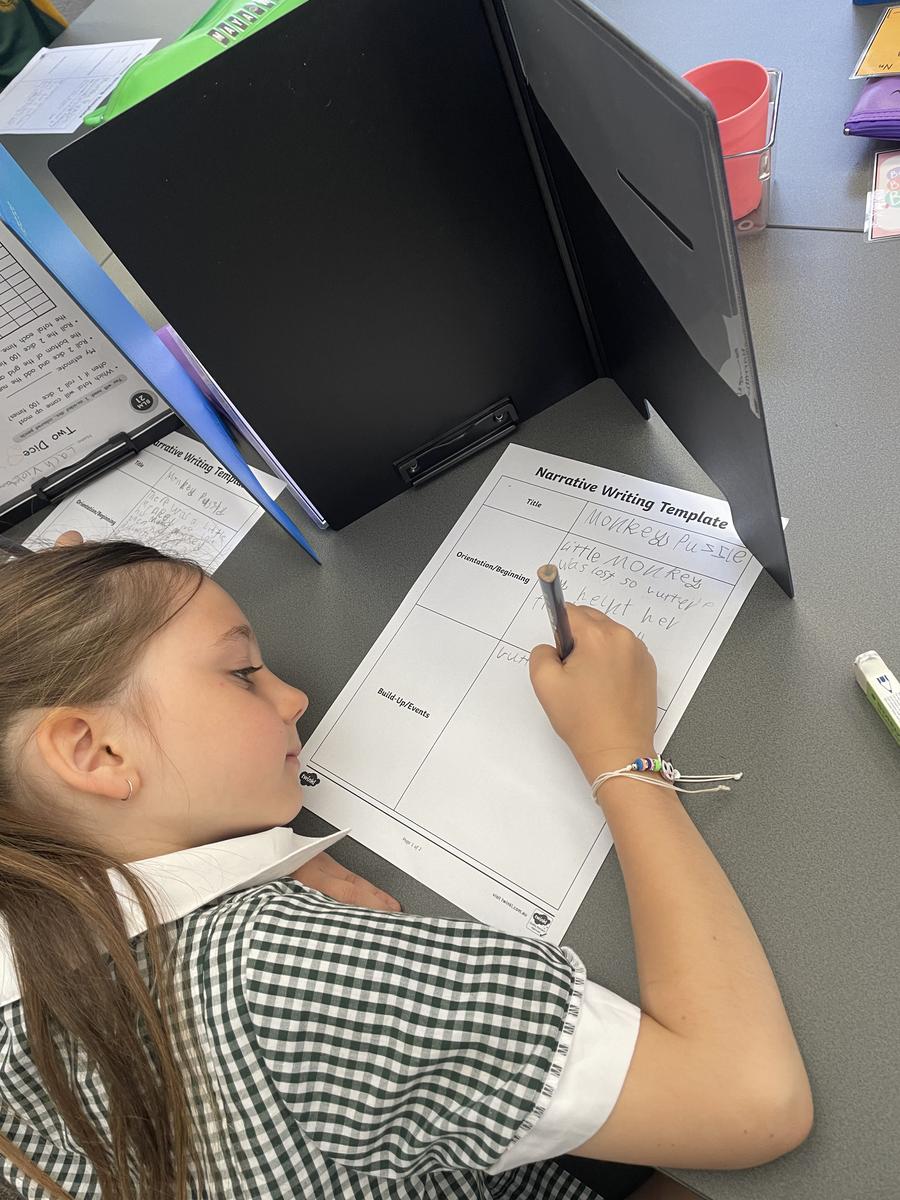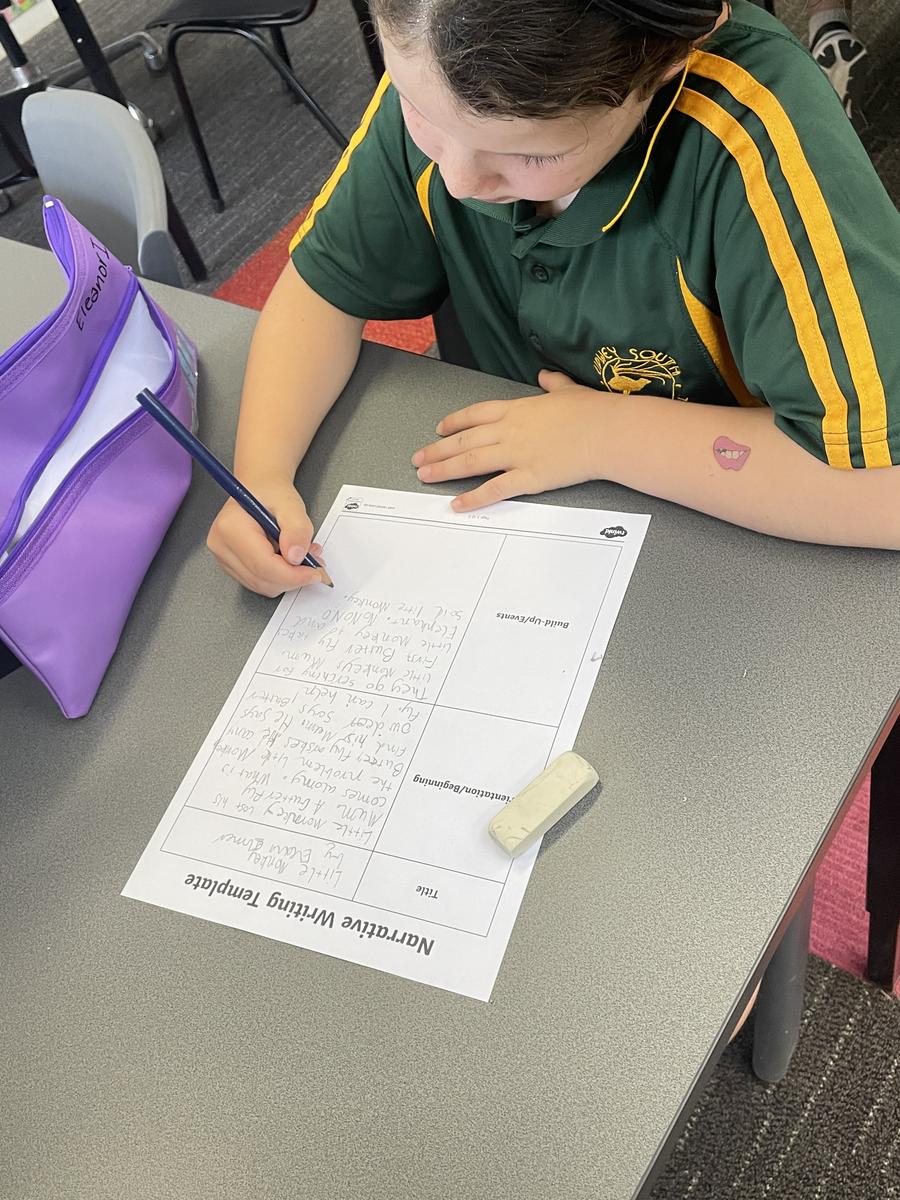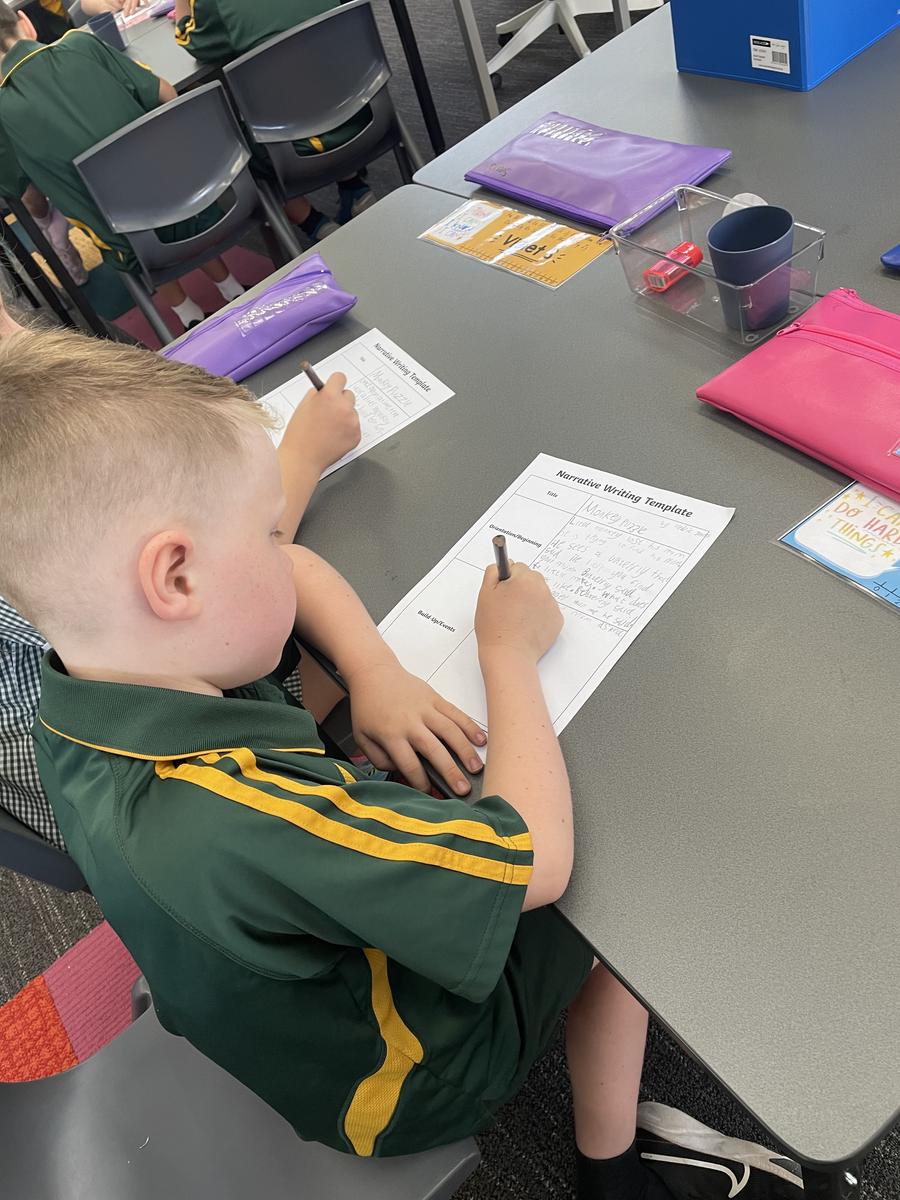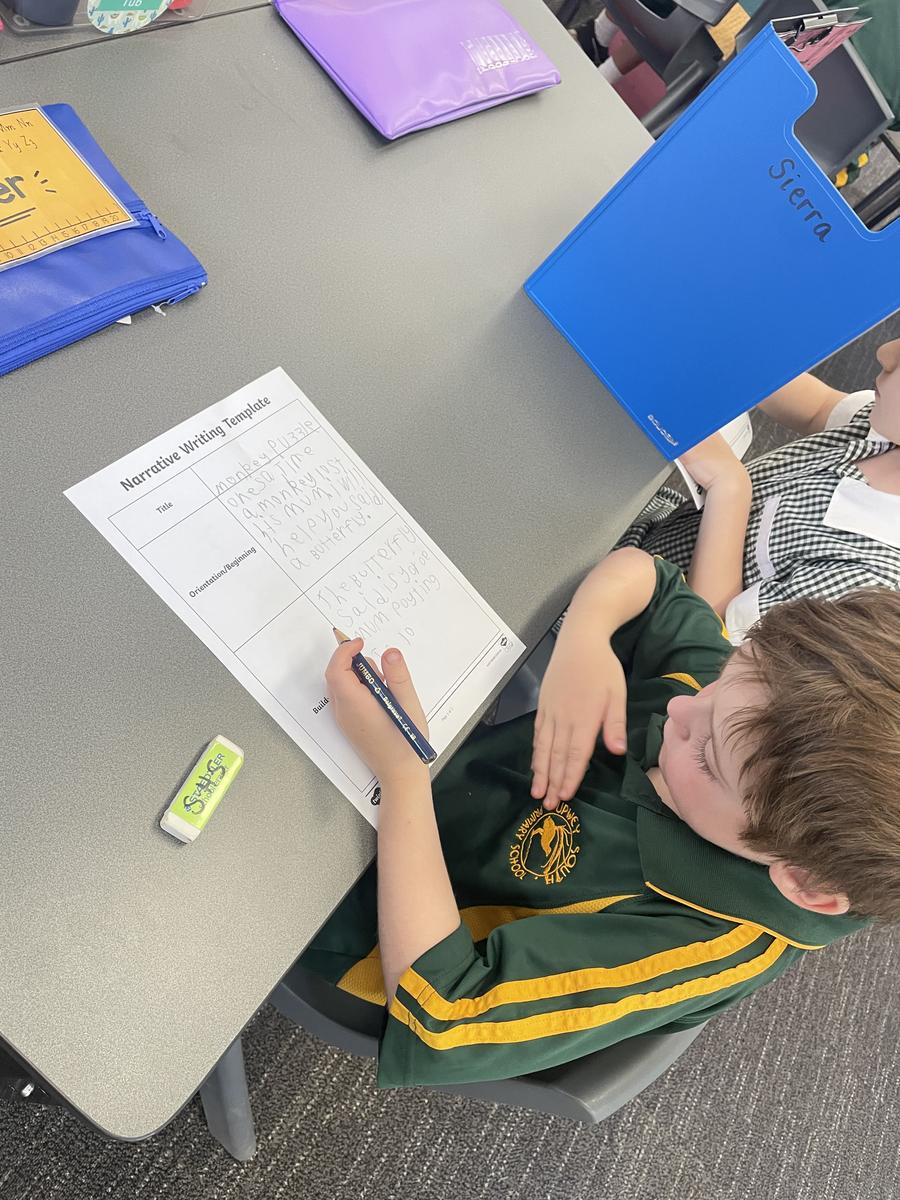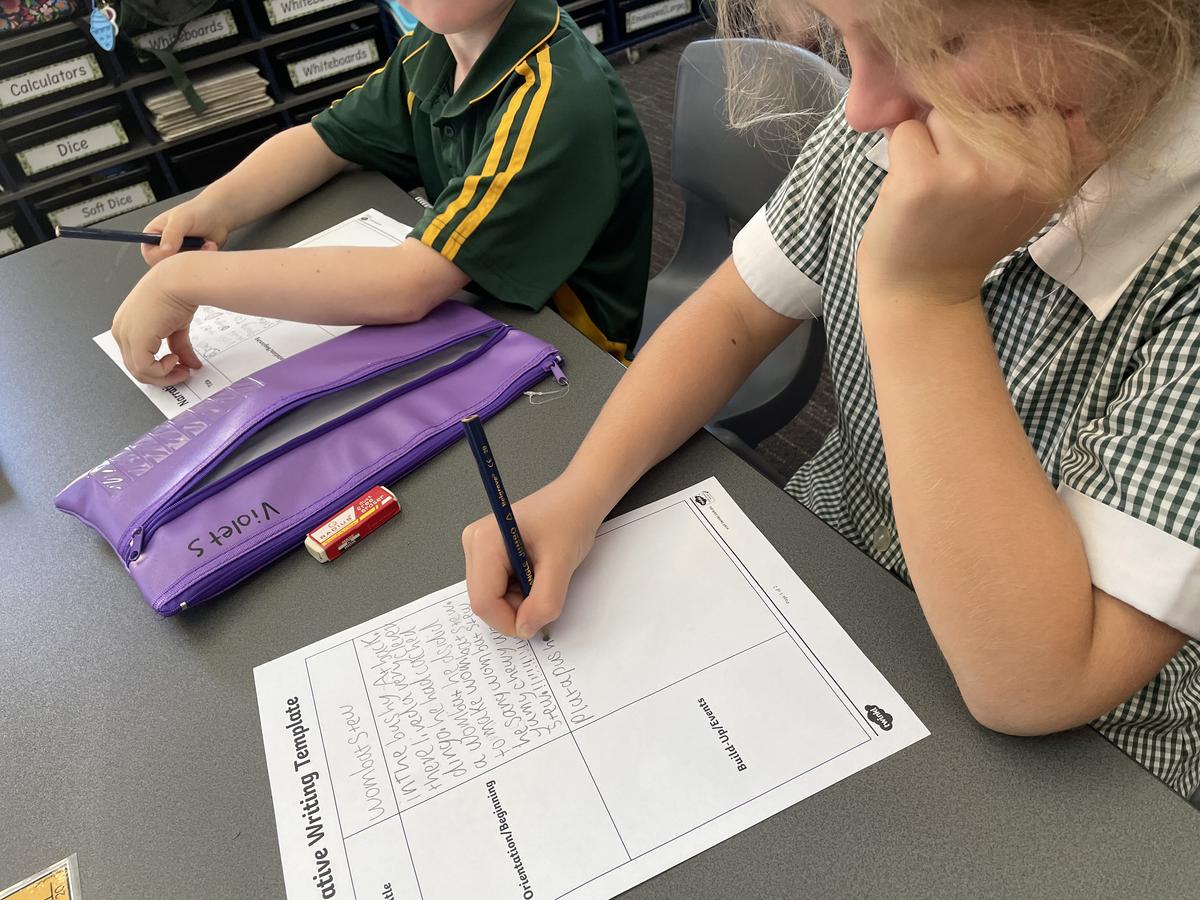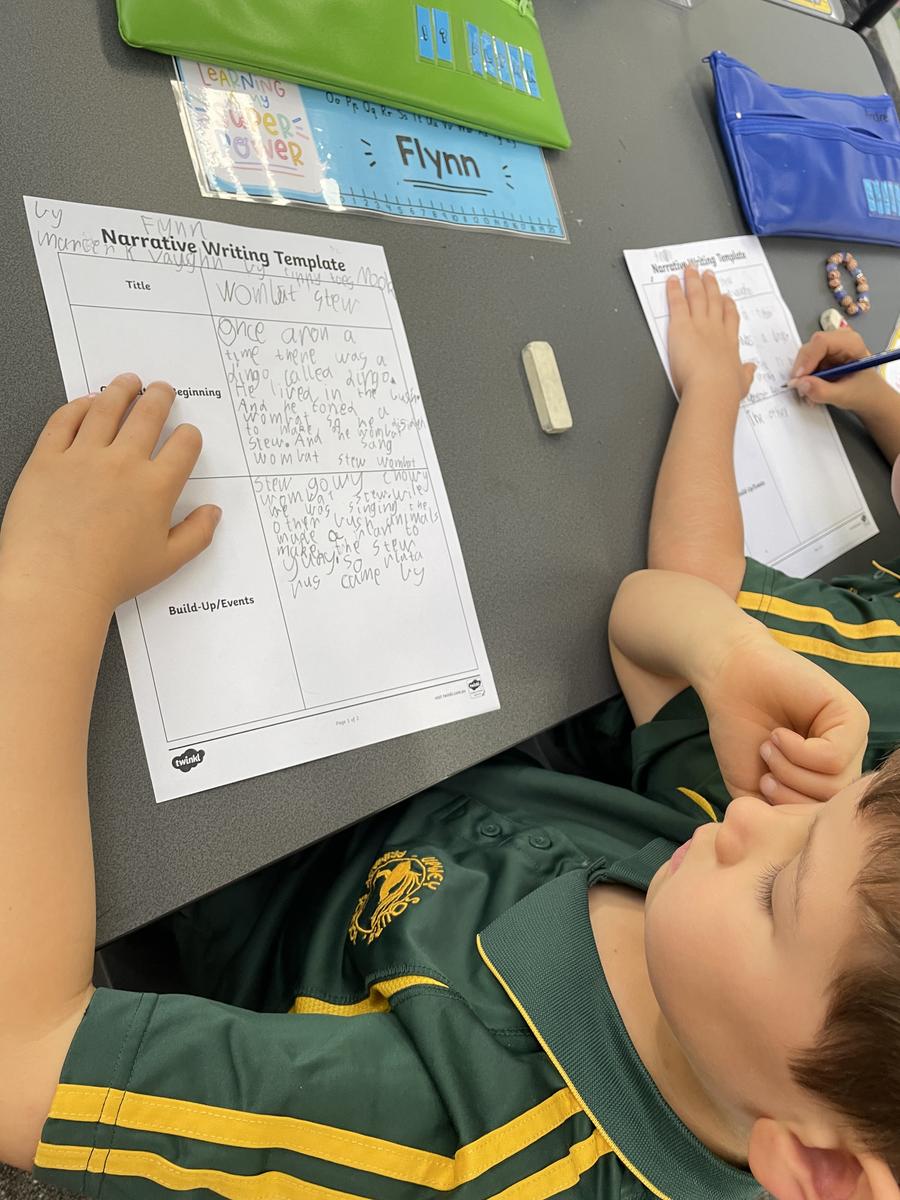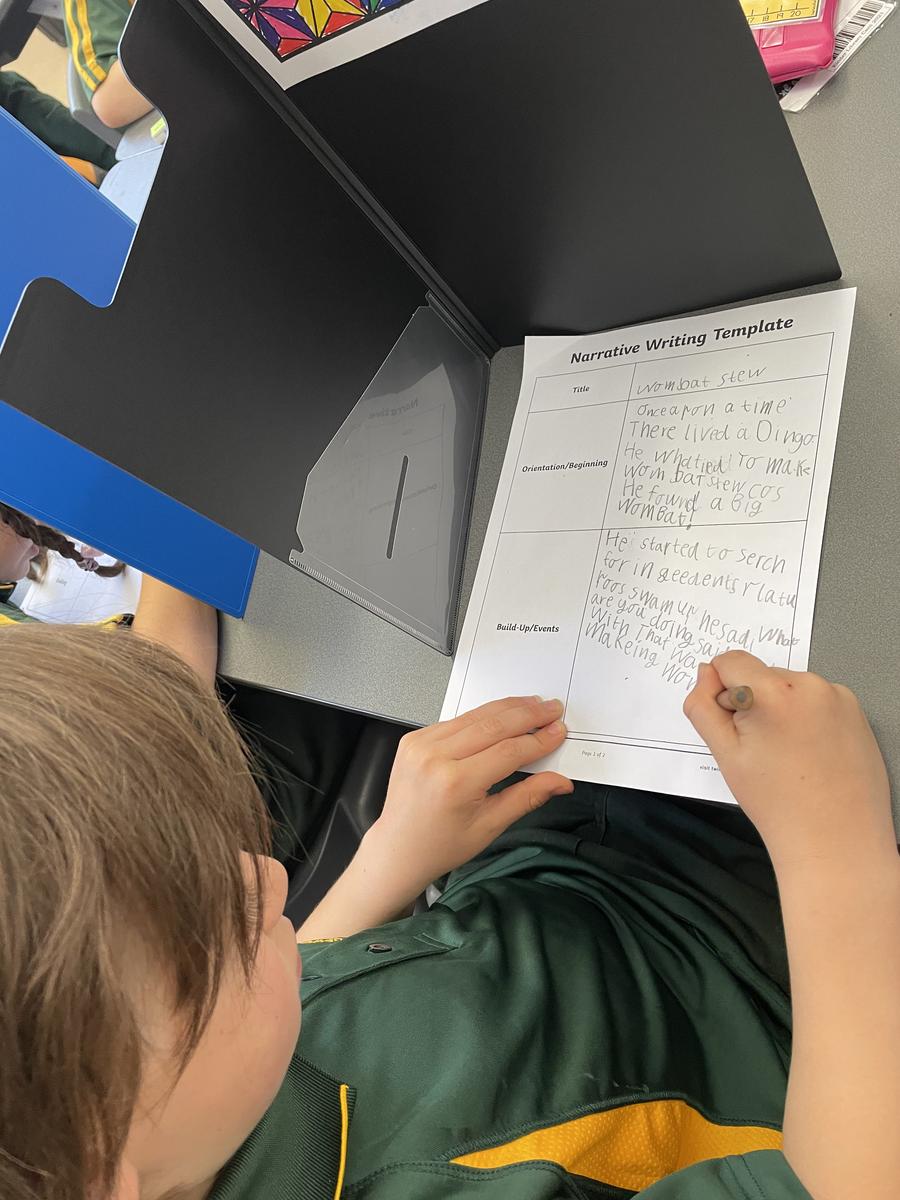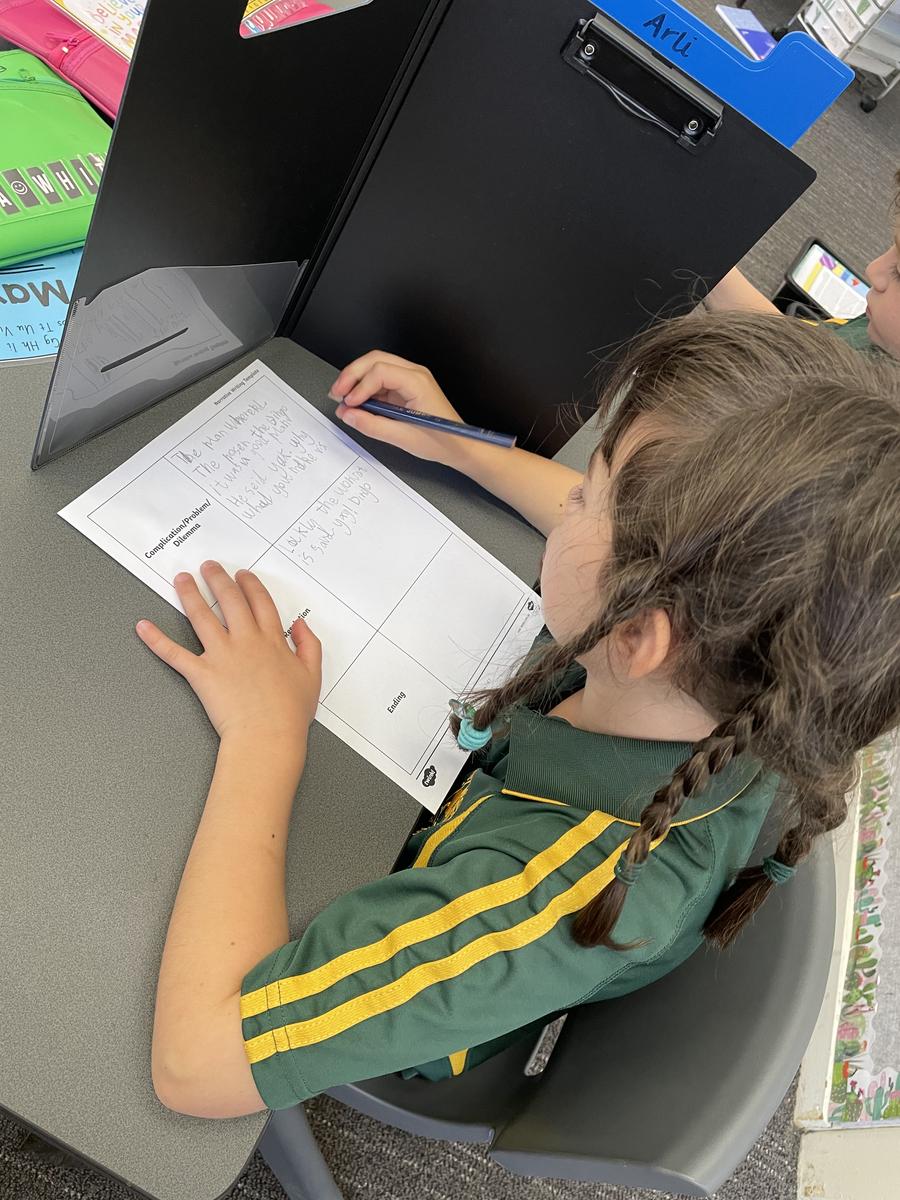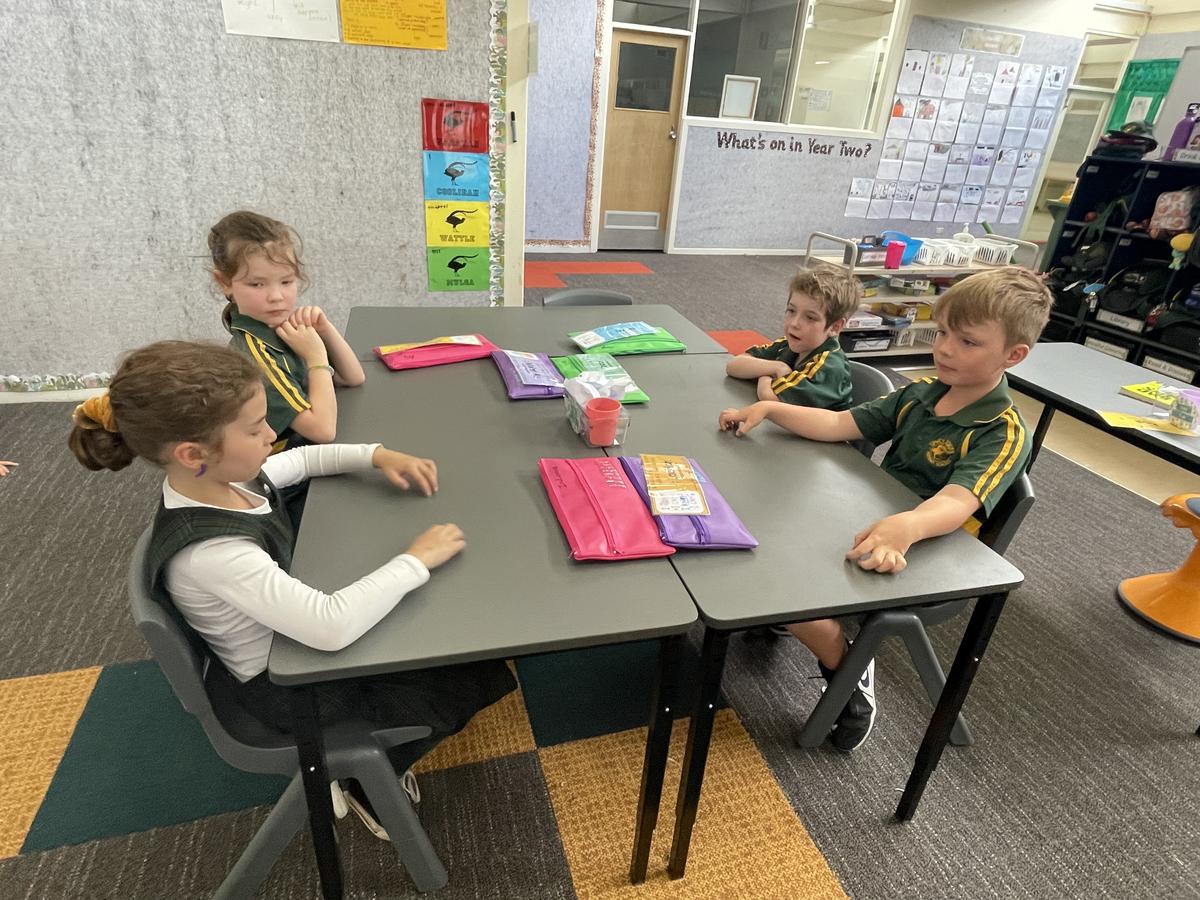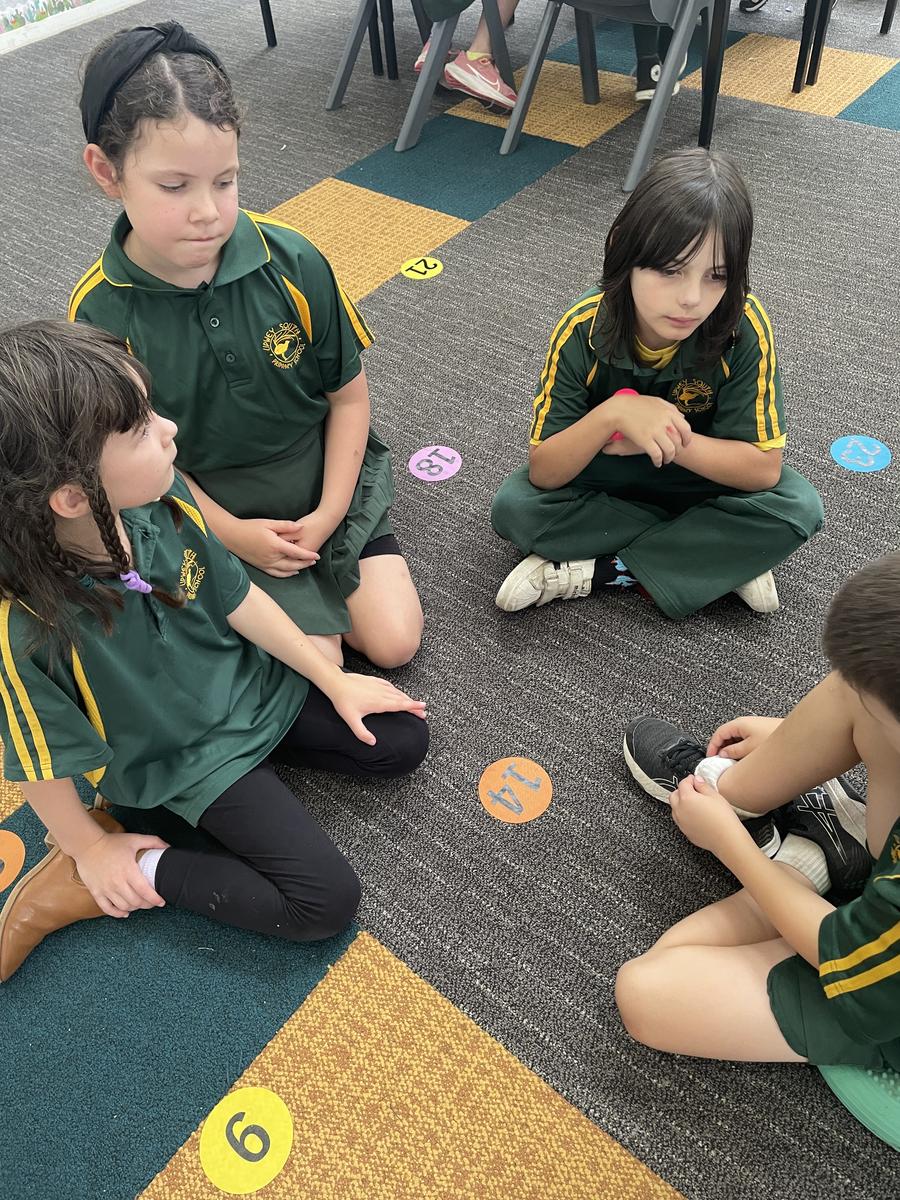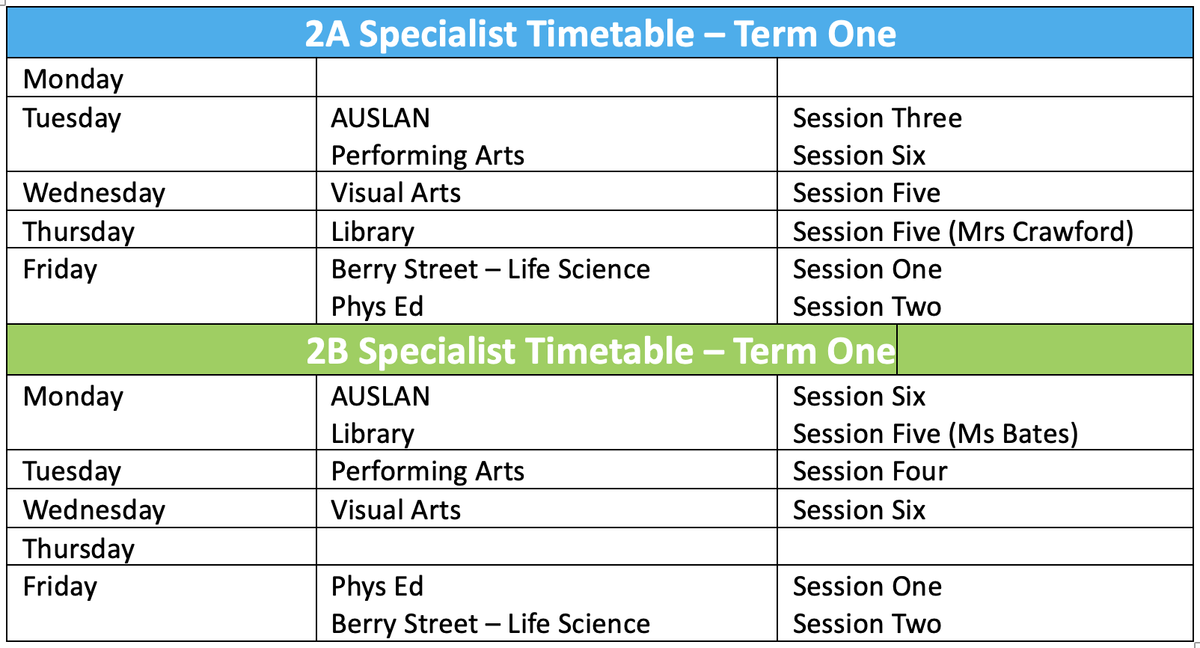Year Two
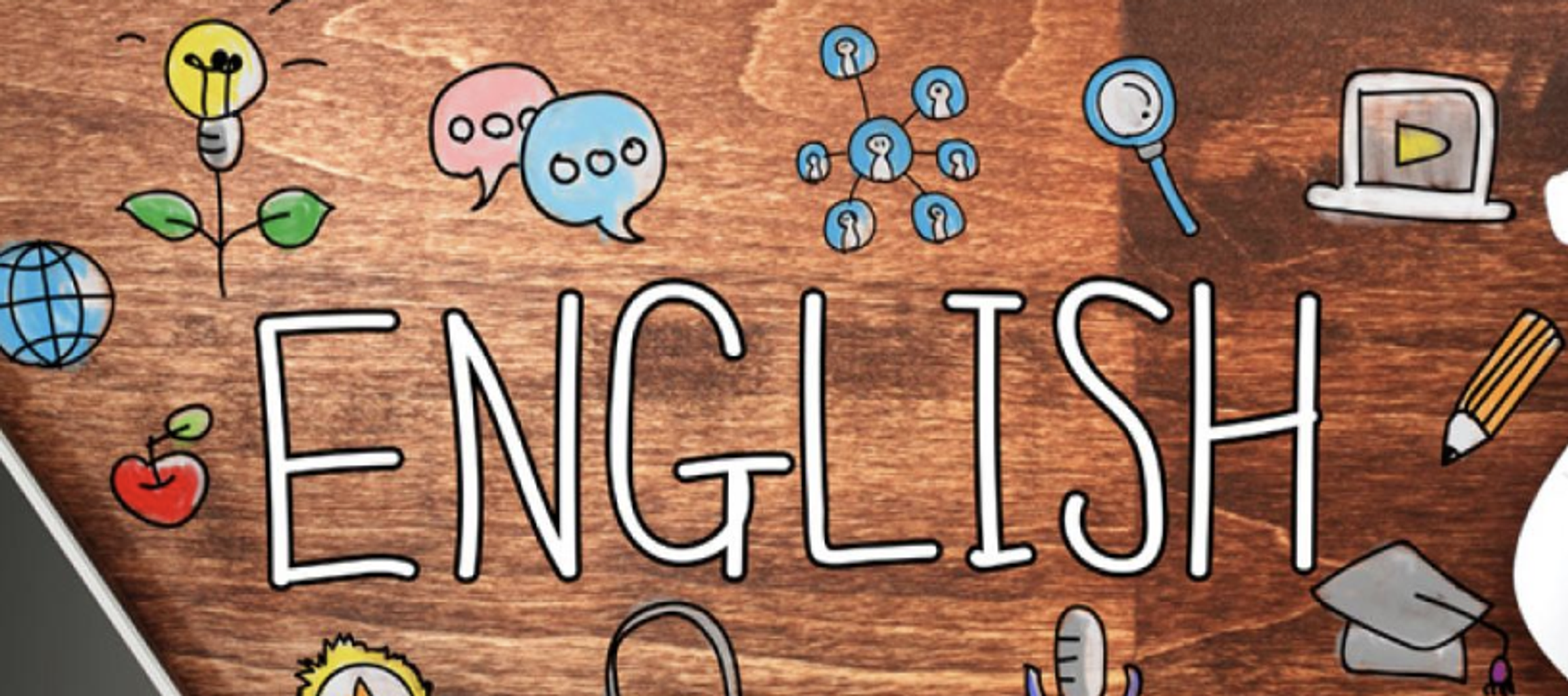
Communicating with the Year Two Team
Rebecca Crawford (Class 2A) Rebecca.Crawford@education.vic.gov.au
Zoe Bates (Class 2B) Zoe.Bates@education.vic.gov.au
ENGLISH:
Year Two students participate in the InitaLit Two synthetic phonics program. This program is evidence based and has been developed by Macquarie University and follows our school wide instructional model the 'Gradual Release of Responsibility'. In 2024, students will participate in a rigorous Spelling program that is complimented with Grammar and Comprehension lessons. Vocabulary is built during a weekly Storybook lesson.
Reading and Viewing:
Throughout Term One, the Year Two students have been learning about the three main text types and their purpose. They are:
During InitaLit Comprehension sessions, they have identified the structural features of each text type and made connections between when and where we see examples of each in our everyday lives. Students have been using information that is directly stated in the various text types and answered questions to demonstrate their understanding. This is called 'developing literal comprehension' skills.
Another part of Comprehension session involves reading out loud. The main focus when doing this is to build on fluency. Students are working on read out loud so that it sounds 'smooth like talking' and not robotic. They are learning to add expression where appropriate when reading and are beginning to use punctuation to help them when reading to an audience. During whole class focus time, we have practised 'choral reading' - where we all read together at the same pace, volume and tone as each other and 'echo reading' - where the teacher models a mentor text where they model how it should be read. Students then repeat the phrases back to their teacher.
Writing:
Throughout Term One, students have been focusing on imaginative texts. They have learnt about the important features to include in an imaginative text such as an introduction, a build up of events, a problem, resolution and conclusion.
Students have been reading and viewing known texts such as 'Koala Lou', 'Wombat Stew' and Monkey Puzzle'. They then wrote a retell of events from each text and will be using this as a springboard into creating their own version of each story. By using known texts, students were provided with the scaffolding needed to explicitly focus on the structural features of story writing.
An ongoing focus for Writing this year is developing editing capacity. Revising and editing is an important part of the writing process because it improves what students have already written. the CUPS acronym has been explicitly taught to students to assist them when editing their own work and stands for:
Handwriting sessions during the week have assisted our Year Two students with their letter formation when writing. They have been focusing on pencil grip, and forming letters using the correct entry and exit points on the dotted thirds. Letters have been taught explicitly where teachers have modelled where the correct entry and exit points lie when constructing upper case and lower case letters. By working on fine motor skills regularly, our students will put in less cognitive load when trying to write down their ideas as letter formation will come automatically.
Year Two students participate in a rigorous spelling program throughout the year. Students have covered the following concepts thus far:
Digraphs - two letters that make one sound:
ai, ay, oa, ow, y, bossy e, ew, ee, ea,
Trigraphs - three letters that make one sound:
igh'
Split Digraphs - when a vowel is split by a consonant and the final 'e' is not pronounced, making the vowel say its name (e.g: shine)
a_e and e_e
Speaking and Listening:
The Year Two students have many wonderful opportunities to interact with one another during a variety of learning tasks throughout the day. As mentioned above, we participate in various types of reading to improve fluency. This included partner reading when completing Comprehension sessions. Students are given a mentor text and are allocated a partner. They then move off to a spot int he room and sit elbow to elbow, knee to knee. One person in the pair reads the mentor text out loud and the other student checks they are decoding the words correctly, reading fluently so it 'sounds like smooth talking' and has expression. Feedback is given to the student who read by using a sandwich approach. This means the students tells their partner what they like about their reading, gives one suggestion for improvement and finishes with another copliement, The students then swap over and repeat the process.
Student to student feedback given may look like this:
'(Name), I really liked how you read smoothly while you were reading. It sounded like you were just talking. Next time, could you please read a little louder so that I can hear you better? I would really love to hear all of your expression. You were such a great reader by reading all of the words correctly. Thankyou for letting me listen to you read today'.
In Respectful Relationships this week, we discuss the emotion 'feeling proud'. Students worked ion small groups to take tunrs and discuss moments when they felt proud. Some examples discussed included times whenthey worked hard to win something such as a medal or trophy, a participation award or a competition. Other students talked about feeling proud when they completed a goal they were working towards and some mentioned they felt proud when they kept trying and persevering to be successful in their passion.
Students then worked in small groups to collaborate and discuss a fictional character named 'Jordi' and things she might go home and tell her parents she is proud of. Examples were shared with the wider class cohort and links were made towards intrinsic and extrinsic motivators.
Take Home Readers:
Year Two Take Home Reading Diaries are checked on Monday each week.
Students will be given an opportunity to change their books for the week during this time. If students do not wish to use school books, they can read a text of their choice.
Next week, students in 2A and 2B will be coming home with their log on cards for the MultiLit Digital Library. They will be located in your child's green wallet.
Year Two Specialist Timetable:
